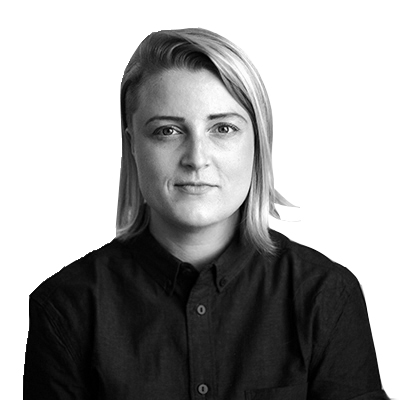In a sweeping speech today, Facebook’s founder and chief executive Mark Zuckerberg laid out a framework portraying the social media giant as a sympathetic hero and champion of both free speech and democratic values. In doing so, he tried to situate Facebook as a modern proxy in a storied legacy of civil rights movements, citing the abolitionist Frederick Douglass, the late civil rights advocate Rep. Elijah Cummings, and Martin Luther King Jr.
“In times of social turmoil, our impulse is often to pull back on free expression. We want the progress that comes from free expression, but not the tension,” Zuckerberg said. “We saw this when Martin Luther King Jr. wrote his famous letter from Birmingham Jail, where he was unconstitutionally jailed for protesting peacefully.”
Zuckerberg’s name-check did not go unnoticed by King's daughter, who suggested on Twitter that she thinks her father’s message was twisted in the service of Facebook’s aims.
“I'd like to help Facebook better understand the challenges #MLK faced from disinformation campaigns launched by politicians,” King said. “These campaigns created an atmosphere for his assassination.”
Throughout his speech, Zuckerberg emphasized Facebook’s precarious current position not as a key moment for the beleaguered yet wildly rich company, but as a crossroads for humanity itself. Facebook has often benefited from this conflation, which both elevates and obscures the company's own driving business self-interest.
“We are at a crossroads,” Zuckerberg said. “We can either stand for free expression... or we can decide the cost is simply too great. We must continue to stand for free expression.”
He’s likely to recycle some of the talking points next week, when he appears before Congress to defend his company's plans for its own form of digital currency, called Libra.
For now, he didn’t get into that. In typical Zuckerberg style, he opined about how his platform brings people together—a morally ambiguous mission that Facebook has always coded as a de facto social good. He declared social media the "fifth estate," a social force "alongside the other power structures in our society.”
“People no longer have to rely on traditional gatekeepers in politics or media to make their voices heard, and that has important consequences,” Zuckerberg said, taking a swipe at the company’s two most troublesome checks and balances.
Dressed as a hacker-saint, solemn in a black long sleeved shirt and black pants, Zuckerberg addressed a captive audience at a chapel-esque Georgetown event hall. To get in, lines wrapped in and around the building.
It's clear that Facebook plans to double down on strategically framing itself as a champion for free speech in its multi-front war. Those fronts include going up against Rep. Maxine Waters (D-CA) in the House next week over his company's sweeping plans to develop a global cryptocurrency, fending off antitrust probes from the DOJ and state attorneys general, and de-escalating the conflict with newly front-running Democratic presidential candidate Elizabeth Warren, who has made taking big tech down a notch a pillar of her campaign. Not to mention the company’s other big existential worry: that lawmakers could dismantle Section 230, the liability shield that tech companies have flourished under, ironically co-authored by one of Facebook’s fiercest critics in Congress.
Taking the focus off of his company, currently beset from all sides, Zuckerberg looped back time and time again to Facebook's core mission of "Giving more people a voice"—a quest that regulation would certain dampen. Facebook prefers to project an image of a business dutifully serving what just so happens to be two billion individuals rather than a digital advertising mill grinding users into valuable grist, an image critics are more likely to paint.
While he mostly kept the speech high-level, Zuckerberg did dip into a few policy specifics. For one, he positioned Facebook as a bulwark against the threat of a Chinese technological takeover, setting up his own company as a potent symbol of Western values that must be preserved at any cost. So much for Facebook’s plans in China.
He also defended the company's stance on allowing political ads with no fact-checking or oversight process. "I don't think it's right for private companies to censor politicians or the news in a democracy," Zuckerberg said.
Zuckerberg admitted that his company has thought about abandoning its practice of running political ads altogether, which make up an inconsequential sliver of the company's business. He argued that if Facebook pulled back from running political ads, it would have to make all kinds of other sticky determinations about what is and is not a political ad.
"There are many more ads about issues than there are ads about elections. Do we ban ads about healthcare, immigration or women’s empowerment?” he said. “If you’re not going to ban those, does it really make sense to give everyone else a voice in political debates except for the candidates themselves?”
He went on to argue that political advertising "can be an important kind of voice" and that disallowing it favors incumbents and "whoever the media chooses to cover."
Facebook and other major tech platforms have recently shied away from articulating platform policies in depth, instead addressing situations as they arise in context and leaving plenty of wiggle room. For Facebook, the preferred decision is one that doesn't lead to a cascade of other decisions.
"I believe people should decide what is credible, not tech companies," Zuckerberg said.
For his part, Zuckerberg still believes that users should make their own determinations, a position that positions Facebook conveniently—if unrealistically—above the fray.
"I believe in giving people a voice because at the end of the day, I believe in people," Zuckerberg said.






